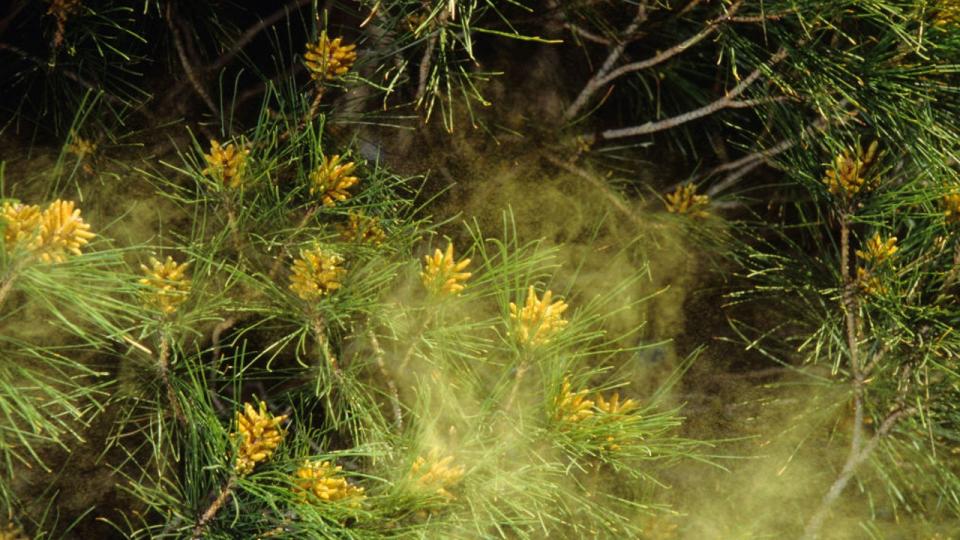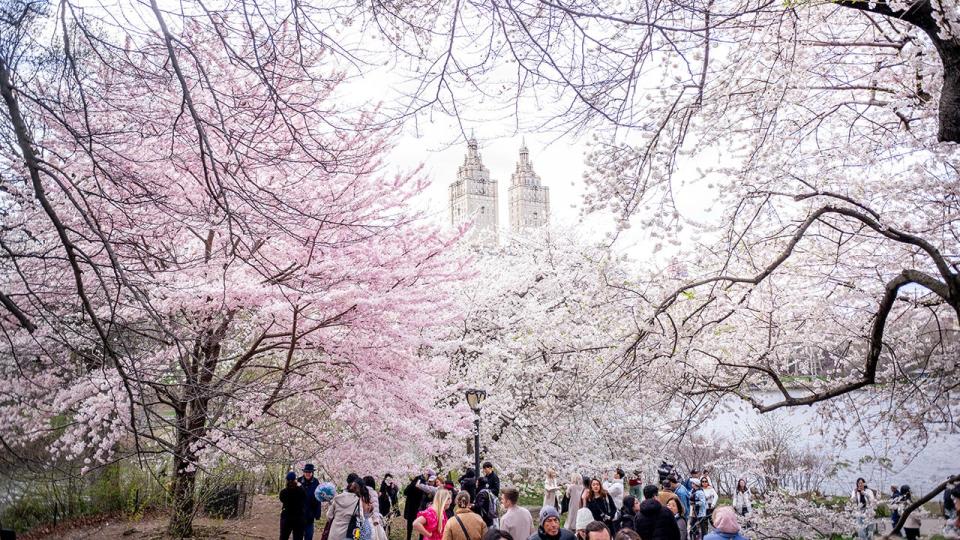2024 NYC allergy season forecast

NEW YORK - Most New Yorkers love basking in the warm springtime weather, but with it comes what so many dread -- that sudden spring of allergies.
The 2024 allergy season is here, and it's stronger than expected. Here's what you need to know if you're one of the 100 million Americans dealing with itchy eyes, runny nose and other symptoms of seasonal allergies.
How are allergies in NYC?
The Asthma and Allergy Foundation of America issues an annual ranking of the most challenging cities to live in if you have allergies, based on over-the-counter medicine use, pollen counts and the number of available allergy specialists.
Lucky for NYC, it ranks as one of the least challenging cities for allergies in 2024, with better-than-average conditions expected. This year, the top five were Wichita, Kansas; Virginia Beach, Virginia; Greenville, South Carolina; Dallas; and Oklahoma City.
Yet experts say climate change has led to longer and more intense allergy seasons. In New York, it's expected to continue until about June, allergist Dr. Marie Cavuoto Petrizzo told FOX 5 NY's Kendall Green.
"That’s not the end of the story, because then we see the grass pollens coming up for the summer allergies, so it’s not a great combination for allergy sufferers," Petrizzo added.
Tips for prevention
For those with allergies, avoiding the elements may be wise. While the weather may feel good, you probably won't.
"We always recommend people try to stay indoors on high pollen days," Petrizzo said. "If that is not possible when you go outside, limit your time when you come back inside, it’s a great idea to shower and wash your hair to get all of the pollen off of you."

Pollen trackers can help with planning. The American Academy of Allergy Asthma and Immunology tracks levels through a network of counting stations across the U.S. Counts are available at its website and via email.
Petrizzo added that those with spring allergies should keep windows closed to keep the pollen from coming into the room and, if possible, run an air conditioner, which can act as an air filter.
Patients whose eyes get irritated should wear sunglasses outside day and night.
"Think about wearing a brimmed hat because that actually protects the eyes," Petrizzo said.

How to relieve allergy symptoms
The first thing to figure out is what specifically you're allergic to, Dr. Nana Mireku, an allergist, told the Associated Press. Many Americans are allergic to several things at once, and allergists can run tests for different triggers.
Over-the-counter nasal sprays can help relieve symptoms, but they take a while to kick in, so it's best to start them in early March, Shah said.
Antihistamines are another option. Shah said she's seen some patients benefit from switching to a similar brand if one stops working, but said that there isn't much broader data to back the recommendation.
For young children and people who have to take many different allergy medications, immunotherapies in the form of shots and oral drops can help desensitize the immune system to allergens, treating symptoms at their root.
The Associated Press contributed to this report.

